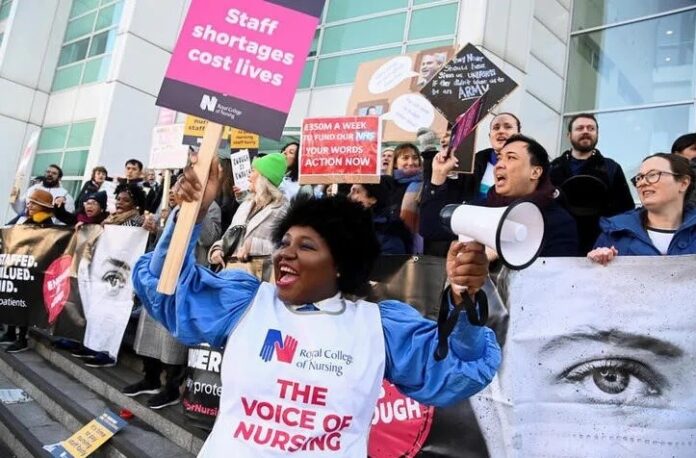LONDON (Reuters) – The British government succeeded on Thursday in limiting the length of an upcoming strike by nurses, after the health department took legal action against a trade union.
The Royal College of Nursing (RCN) had called a 48-hour strike from the evening of April 30, which for the first time would involve staff from emergency departments, intensive care units, cancer care and other, previously exempt services.
However, Britain’s health department said that industrial action on May 2, part of a long-running dispute, would be unlawful because a vote to strike is only valid for six months after a ballot of trade union members.
Lawyers representing health minister Steve Barclay told London’s High Court on Thursday that, as the RCN ballot closed on Nov. 2 last year, a strike on May 2 would be “clearly unlawful action”.
The RCN did not send lawyers to the hearing.
Judge Thomas Linden ruled on Thursday that the RCN’s mandate for industrial action ended at midnight on May 1, meaning its planned strike the following day would be unlawful.
Barclay welcomed the ruling, saying the government had taken the RCN to court “with regret”.
“I firmly support the right to take industrial action within the law, but the government could not stand by and let plainly unlawful strike action go ahead,” he said in a statement.
Nurses have rejected a 5% pay rise, despite the RCN recommending its members accept it, instead seeking an increase nearer to inflation which is running at more than 10%.
RCN General Secretary Pat Cullen described the legal action as “the darkest day of this dispute so far”, accusing the government of “taking its own nurses through the courts in bitterness at their simple expectation of a better pay deal”.
“Nursing staff will be angered but not crushed by today’s interim order,” she said in a statement. “It may even make them more determined to vote in next month’s re-ballot for a further six months of action.”






